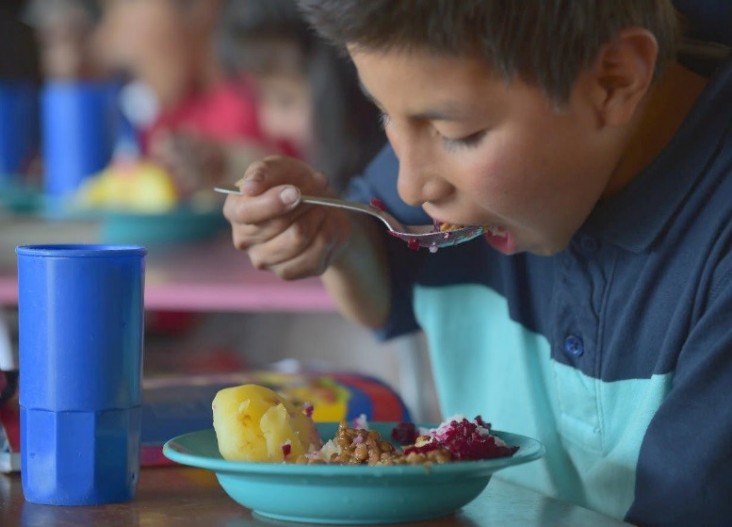Speeches Shim

June 2016—For many families who have been forced to flee from conflict in Colombia, Ecuador has become a safe haven.
“Where we lived before, there were armed groups. We couldn’t live in the same place as them. We made the decision together ... because I have a 6-year-old son, and it wasn’t a good environment for him,” explains Ana*, a refugee mother living in Ecuador’s northern region, where many Colombian refugees cross the border into Ecuador and resettle.
Ecuador hosts the largest number of refugees and asylum seekers in Latin America, the majority of whom are escaping from the 50-year conflict in Colombia.
USAID is helping to meet both short-term and longer-term needs of refugees and vulnerable host communities in Ecuador by partnering with the U.N. World Food Program (WFP) to provide monthly electronic food vouchers. E-vouchers are critical to the refugee crisis because of their long-term benefits for the vulnerable families who receive them and for local communities.
Families such as Ana’s use e-vouchers to choose and purchase items at local stores that make up a nutritious food basket with fruits, vegetables and sources of protein like chicken or eggs. Allowing recipients to shop for their own food is an important aspect of the e-voucher system as it helps to promote dignity and independence.
Families are also trained in nutrition, learning the value of a healthy diet and the importance of eating a variety of nutritious foods.
“This help that WFP has given us has served us well. The products we buy last us a month,” says Ana. “There are foods that are very healthy, so I would like my son to learn to eat them, how to vary what he eats. The most important foods are dairy products, vegetables, fruits, chicken, eggs, more than anything else.”
E-vouchers also help to stimulate local economies. Since the vouchers are used at local shops, shop owners benefit from new customers and increased income. The shops are stocked by local small-scale farmers, who in turn benefit from increased demand for their produce.
By supporting local businesses and farming, e-vouchers strengthen communities while providing essential food assistance to refugees.
In fiscal year 2015, USAID contributed more than $2 million to WFP to help provide critical food assistance to more than 18,000 Colombian refugees and vulnerable Ecuadorians and to provide income-generating activities to complement e-vouchers and strengthen communities. In March 2016, USAID contributed an additional $2.1 million to the response, including activities along the northern border and the coastal earthquake-affected Esmeraldas province.
*Name changed to protect identity.
LINKS

Comment
Make a general inquiry or suggest an improvement.